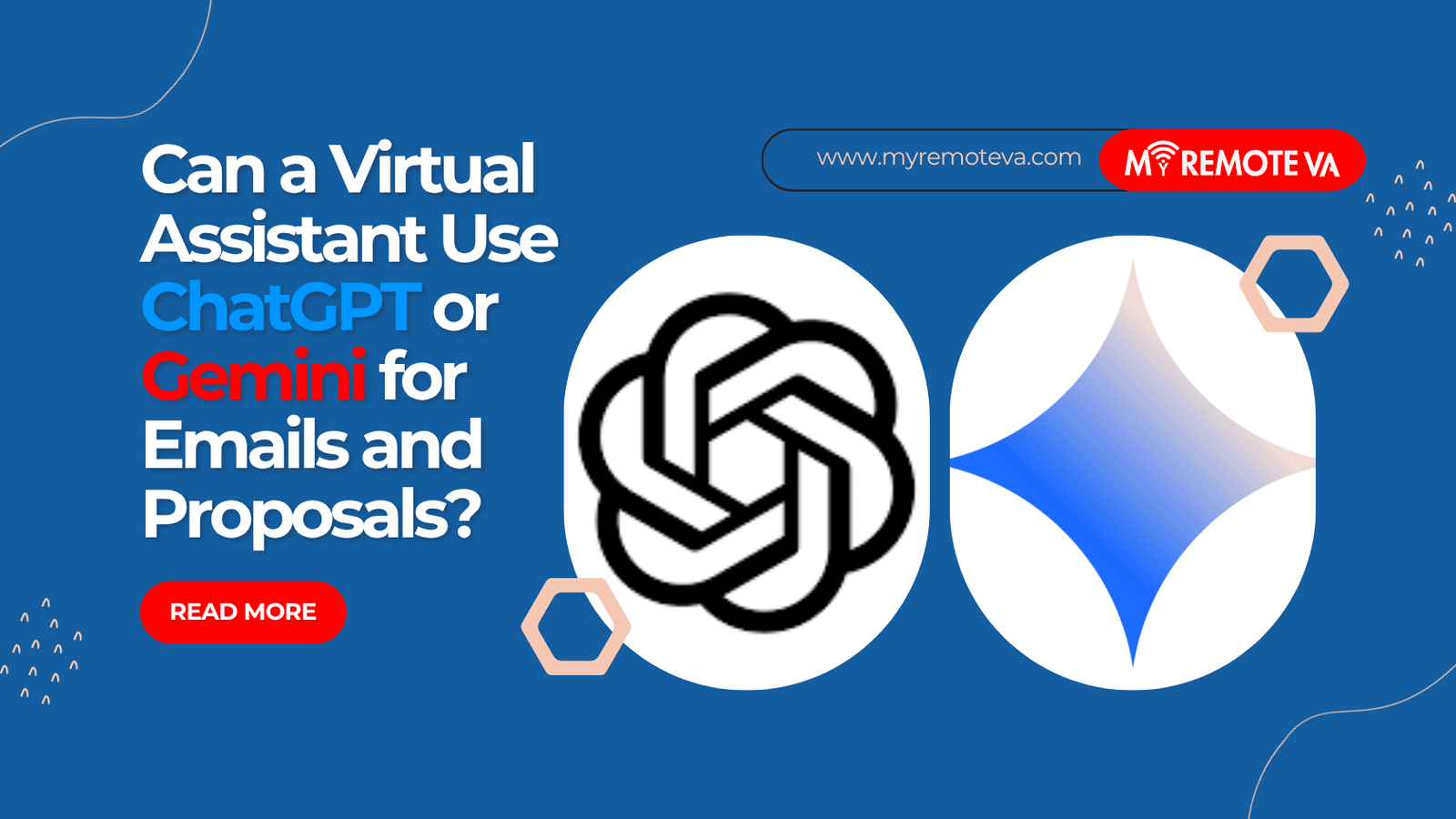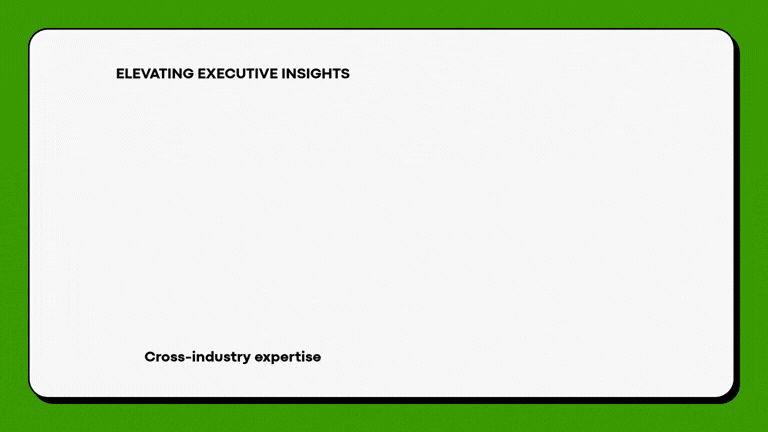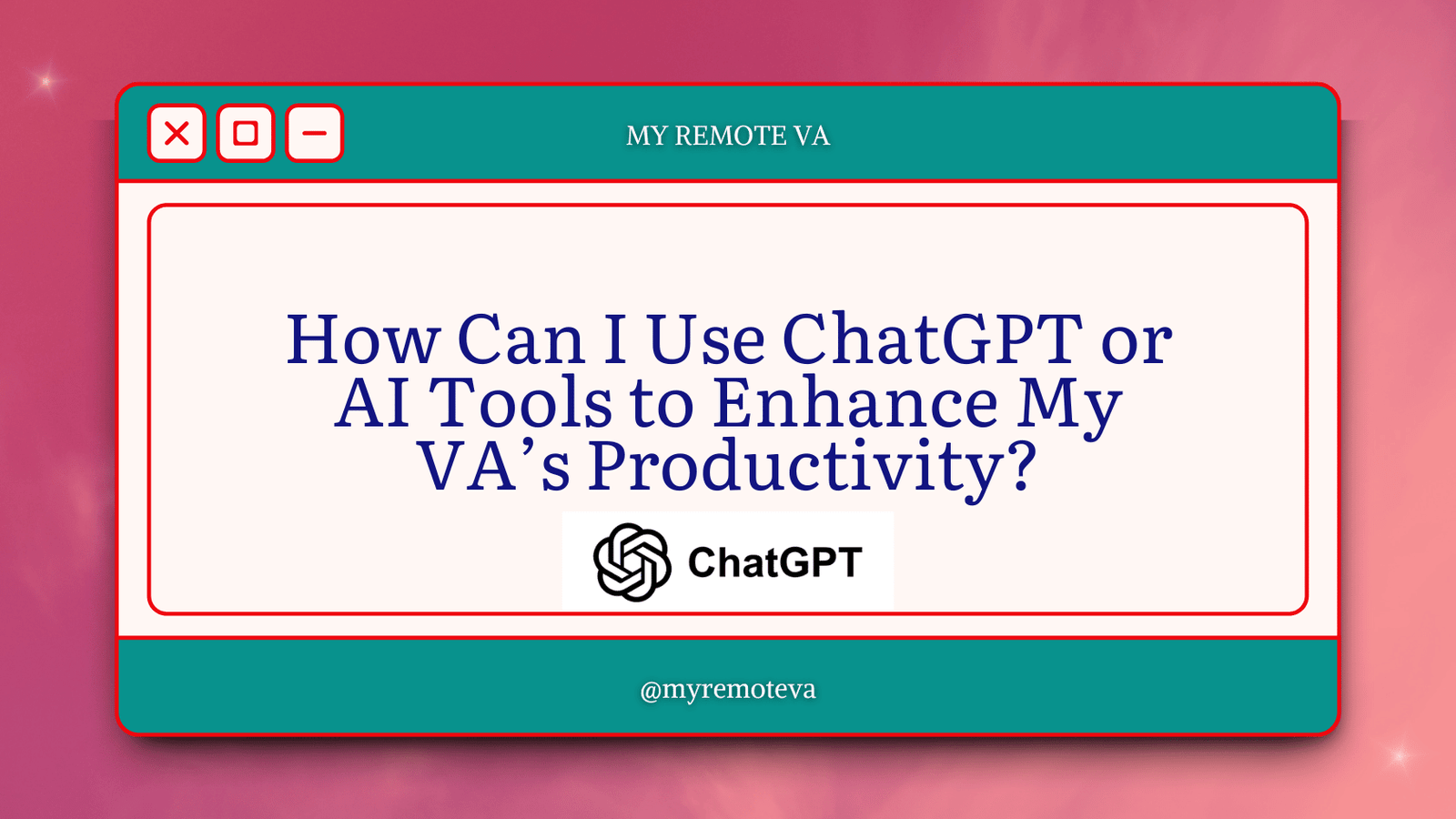Can a Virtual Assistant Use ChatGPT or Gemini for Emails and Proposals?
Yes, virtual assistants can absolutely leverage AI tools like ChatGPT and Gemini to draft emails and proposals. These AI models are powerful tools that can significantly enhance efficiency and productivity in various writing tasks.
- Can a Virtual Assistant Use ChatGPT or Gemini for Emails and Proposals?
- Can a Virtual Assistant Use ChatGPT or Gemini to Draft Emails and Proposals?
- The Rise of AI-Assisted Virtual Assistants
- Using ChatGPT and Gemini for Email Drafting
- Using ChatGPT and Gemini for Proposal Drafting
- Best Practices for AI-Assisted Email and Proposal Drafting
- Recent Market Signals (USA, UK, New Zealand, Singapore, Australia, UAE - Last Month)
- The Future of AI in Virtual Assistant Services
- Conclusion
- FAQ: AI-Assisted Email & Proposal Drafting with Virtual Assistants
- Can ChatGPT or Gemini Completely Replace a Human Writer?
- Is it ethical to use AI to write emails and proposals?
- How do I ensure the AI-generated content is original?
- What are the data privacy implications of using AI tools?
- What skills should a virtual assistant develop to effectively use AI tools?
- How much can AI reduce the time spent drafting emails and proposals?
- Can I use ChatGPT or Gemini to Generate Content in Different Languages?
A virtual assistant equipped with AI writing capabilities can assist with:
- Drafting professional and persuasive emails: Quickly generating email drafts for various purposes, such as client communication, follow-ups, and internal updates.
- Creating compelling proposals: Developing well-structured and persuasive proposals for projects, services, or collaborations, tailored to specific client needs and objectives.
- Improving writing quality: Refining existing content for clarity, grammar, and style, ensuring a professional and polished final product.
- Generating ideas and outlines: Brainstorming content ideas and structuring documents for maximum impact and readability.
- Adapting tone and style: Adjusting the writing style to match the specific brand voice and target audience.
By using AI, virtual assistants can save time and resources, allowing them to focus on more strategic and complex tasks. For example, a virtual assistant could use ChatGPT to create a first draft of a marketing proposal and then refine it with their own expertise and knowledge of the client. This hybrid approach combines the speed and efficiency of AI with the human touch necessary for high-quality, personalized communication. Expert virtual assistant support for startups, founders, agencies, and busy professionals can be provided through flexible hourly and team-based plans. These plans allow for delegation of admin, tech, customer support, marketing, creative tasks, or executive work.
A dedicated supervisor can manage the virtual assistant, shift, processes, and reporting. Curated Hourly Monthly Plans are often available, such as (5, 10, 20, 30 hours), or a team can be built with Dedicated Plans, for 80 hours, or for 160 hours, or multi-VA setups. It’s a great way to enhance productivity and efficiency for professionals.
Can a Virtual Assistant Use ChatGPT or Gemini to Draft Emails and Proposals?
The short answer is: absolutely! AI tools like ChatGPT and Gemini have become powerful resources for virtual assistants, enabling them to significantly enhance their efficiency and output, especially when it comes to tasks like drafting emails and proposals. Imagine a virtual assistant who can leverage AI to quickly generate initial drafts, saving valuable time and allowing them to focus on higher-level tasks.
For busy professionals, startups, founders, and agencies, this represents a significant advantage. Delegating tasks to a virtual assistant equipped with AI tools can free up your time to concentrate on core business activities. These AI models can provide a foundation for various communications, from routine email responses to complex project proposals.
The Power of AI in Virtual Assistant Services
AI isn’t meant to replace human interaction; rather, it’s designed to augment a virtual assistant’s skills. Think of it as a collaborative partnership where the AI provides the initial framework, and the virtual assistant refines, personalizes, and ensures accuracy and context. This blend of AI-generated content and human oversight results in more effective and efficient communication.
Many virtual assistant services now incorporate AI tools as part of their offerings. A virtual assistant can utilize these tools to handle a wide range of tasks including, but not limited to: admin tasks, tech tasks, customer support, marketing, creative tasks, or executive work, all while managed by a Dedicated Supervisor that will manage the VA, shift, processes, and reporting.
For example, consider drafting a marketing proposal. A virtual assistant could use Gemini to generate an outline and initial content based on provided data and objectives. The virtual assistant would then refine this draft, add specific details relevant to the client, and ensure the proposal aligns with the brand’s voice and style. This collaborative approach leverages the speed and efficiency of AI while maintaining the critical human touch.
The Rise of AI-Assisted Virtual Assistants
The role of virtual assistants is rapidly evolving, thanks to advancements in artificial intelligence. Traditionally focused on administrative tasks, virtual assistants are now increasingly leveraging AI tools like ChatGPT and Gemini to enhance their capabilities and offer more sophisticated support. This shift marks the rise of AI-assisted virtual assistants, promising increased efficiency and productivity for businesses and individuals alike.
AI for Enhanced Communication
One of the most significant applications of AI for virtual assistants lies in communication. Tools like ChatGPT and Gemini can be used to:
- Draft emails: Create professional and tailored email responses based on provided context and objectives. This can save significant time and ensure consistent communication.
- Compose proposals: Generate compelling proposals that clearly outline project scope, benefits, and pricing. AI can assist in structuring the proposal and highlighting key selling points.
- Refine existing content: Improve the clarity, tone, and grammar of existing emails and proposals, ensuring a polished and professional final product.
Beyond Basic Tasks: Strategic Support
The integration of AI extends beyond simple task automation. Virtual assistants utilizing AI can contribute to more strategic areas, offering support for startups, founders, agencies, and busy professionals across various domains. By delegating tasks such as administrative duties, technical support, customer service, marketing activities, creative projects, and executive support, clients can focus on core business functions.
The support is designed around flexible options such as hourly or team-based models with curated Hourly Monthly Plans of (5, 10, 20, 30 hours) or build a team with Dedicated Plans, for 80 hours, or for 160 hours, or multi-VA setups. For clients seeking trial experiences, a Forever Free Plan offers one free hour per month, complete with task support and rollover benefits.
Data-Backed Insights on AI Adoption
The increasing adoption of AI in virtual assistant services is supported by data. Studies show a significant increase in the demand for AI-powered solutions for business process automation, indicating a growing recognition of the value and efficiency AI can bring to various tasks. The ability of AI to handle repetitive tasks allows human virtual assistants to focus on more complex and strategic initiatives.
Using ChatGPT and Gemini for Email Drafting
Yes, virtual assistants can leverage the power of AI tools like ChatGPT and Gemini to draft emails and proposals. These AI models are capable of understanding context, generating human-quality text, and adapting to different writing styles, making them valuable assets for streamlining communication tasks.
Benefits of AI-Assisted Email and Proposal Drafting
- Increased Efficiency: AI can quickly generate initial drafts, freeing up the virtual assistant’s time to focus on more strategic tasks.
- Improved Consistency: AI can ensure consistent tone and messaging across all communications.
- Reduced Errors: By automating the drafting process, AI can minimize the risk of typos and grammatical errors.
- Idea Generation: AI can help brainstorm ideas and generate creative content for proposals and marketing materials.
How Virtual Assistants Use AI for Email and Proposal Drafting
Virtual assistants typically use ChatGPT or Gemini in the following ways:
- Providing Prompts: The virtual assistant provides the AI with clear and concise prompts outlining the purpose, target audience, and key message of the email or proposal.
- Reviewing and Editing: The virtual assistant carefully reviews the AI-generated draft, making necessary edits to ensure accuracy, clarity, and brand consistency.
- Personalizing the Content: While AI can generate generic content, the virtual assistant personalizes the message by adding relevant details and insights specific to the recipient or situation.
- Ensuring Compliance: The virtual assistant ensures that the email or proposal complies with all relevant regulations and company policies.
It’s important to remember that AI is a tool to augment, not replace, human intelligence. A skilled virtual assistant will always play a crucial role in ensuring the quality, accuracy, and effectiveness of all communications.
For example, a virtual assistant supporting startups, founders, agencies, and busy professionals can delegate admin, marketing, or creative tasks and using AI can accelerate the process, to build out materials.
Using ChatGPT and Gemini for Proposal Drafting
Virtual assistants can leverage the power of AI tools like ChatGPT and Gemini to significantly streamline the process of drafting emails and proposals. These AI models excel at generating text based on specific prompts, enabling VAs to create compelling content more efficiently.
Here’s how these tools can be used:
- Initial Draft Creation: Provide ChatGPT or Gemini with key information about your company, the client, the proposed solution, and the desired tone. The AI can then generate a complete initial draft of the proposal, saving the VA considerable time and effort.
- Email Composition: Crafting effective emails, whether for initial outreach or follow-up, can be time-consuming. AI can help generate variations of email drafts, A/B test subject lines, and tailor messages based on specific target audience segments.
- Content Refinement: The AI-generated content should always be reviewed and refined by the virtual assistant. This ensures accuracy, maintains your brand voice, and incorporates any nuanced details that the AI might have missed.
- Summarization & Paraphrasing: AI can quickly summarize lengthy documents or rephrase existing text to improve clarity and conciseness. This is particularly useful when incorporating information from multiple sources into a proposal.
- Research and Data Gathering: While not directly drafting, ChatGPT and Gemini can assist with research by providing quick answers to specific questions or identifying relevant industry trends. This can inform the content of the proposal and make it more compelling.
However, it’s crucial to remember that AI is a tool to *augment* a VA’s skills, not replace them entirely. The human touch, critical thinking, and strategic understanding of a skilled virtual assistant are still essential for creating truly impactful and persuasive proposals.
For instance, a virtual assistant working under flexible hourly or team-based plans (like those offering curated Hourly Monthly Plans of 5, 10, 20, or 30 hours, or Dedicated Plans for 80 or 160 hours) can dedicate their time saved by using AI towards more strategic tasks, such as client relationship management and detailed proposal tailoring.
Best Practices for AI-Assisted Email and Proposal Drafting
Yes, a virtual assistant can effectively leverage AI tools like ChatGPT or Gemini to draft emails and proposals. These tools can significantly speed up the process and generate creative ideas, but it’s crucial to implement best practices to ensure quality, accuracy, and brand consistency.
Human Oversight is Essential
While AI can generate text quickly, it’s not a replacement for human judgment. Always have your virtual assistant carefully review and edit AI-generated drafts. This includes:
- Fact-checking: AI models can sometimes generate inaccurate information. Verify all facts and figures before sending anything.
- Tone and Voice: Ensure the AI-generated text aligns with your brand’s voice and tone. Adjust the language to sound more natural and less robotic.
- Clarity and Conciseness: AI-generated text can sometimes be verbose. Edit for clarity and conciseness to ensure your message is easily understood.
- Target Audience: Consider your target audience and adapt the language accordingly. A proposal for a tech startup will differ significantly from one for a government agency.
Providing Clear Instructions and Context
The quality of AI-generated content depends heavily on the instructions and context provided. Here are some tips for your virtual assistant:
- Detailed Briefs: Provide detailed briefs outlining the purpose of the email/proposal, the target audience, key points to include, and desired tone.
- Example Emails/Proposals: Share examples of successful emails or proposals from the past to help the AI understand your preferences and expectations.
- Keywords and Phrases: Provide relevant keywords and phrases to ensure the AI focuses on the right topics and uses appropriate language.
Leveraging AI for Specific Tasks
AI is particularly useful for specific tasks within the email/proposal drafting process. Consider using it for:
- Brainstorming: Generating initial ideas and outlines.
- Research: Gathering information on competitors, industry trends, or potential clients.
- First Drafts: Creating a basic draft that can then be refined.
- Subject Line Optimization: Suggesting compelling subject lines that improve open rates.
Maintaining Confidentiality and Data Security
When using AI tools, it’s crucial to prioritize confidentiality and data security. Ensure your virtual assistant understands the importance of:
- Avoiding Sensitive Information: Never input sensitive personal or financial information into AI models.
- Reviewing Privacy Policies: Understand the privacy policies of the AI tools you’re using.
- Secure Data Storage: Store AI-generated drafts securely and protect them from unauthorized access.
By following these best practices, you can empower your virtual assistant to effectively leverage AI for email and proposal drafting, saving time and improving overall efficiency.
Recent Market Signals (USA, UK, New Zealand, Singapore, Australia, UAE – Last Month)
Across the USA, UK, New Zealand, Singapore, Australia, and the UAE, there’s been a noticeable increase in the exploration and adoption of AI tools like ChatGPT and Gemini for business communication over the last month. Businesses are actively investigating how these tools can streamline tasks like drafting emails and creating initial proposal outlines.
Increased Interest in AI for Email Marketing
Many businesses are exploring using AI to personalize email marketing campaigns. The ability to quickly generate various subject lines and email body options, tailored to specific customer segments, is a major draw. While AI can generate text quickly, it’s important to remember that oversight is needed to ensure accuracy, tone, and brand consistency.
Exploring AI for Proposal Generation
The creation of comprehensive proposals can be time-consuming. Companies are experimenting with using AI to draft initial proposal sections, such as problem statements, solution overviews, and initial budget estimates. This helps accelerate the process, allowing human team members to focus on refining the content and ensuring it aligns with the client’s specific needs.
Demand for Virtual Assistants Skilled in AI Tools
This growing interest in AI tools has led to an increased demand for virtual assistants who possess expertise in leveraging platforms like ChatGPT and Gemini. Companies are seeking VAs who can not only manage administrative tasks, tech tasks, customer support, marketing, creative tasks, or executive work but also efficiently integrate AI into their workflows to improve productivity and efficiency. The benefit is the ability to get more done, faster, without the burdens of hiring a full-time employee.
The market data indicates that AI-assisted virtual assistant services are becoming increasingly valuable for businesses of all sizes, helping them to remain competitive in a rapidly evolving environment.
The Future of AI in Virtual Assistant Services
AI is rapidly transforming the landscape of virtual assistant services. Large Language Models (LLMs) like ChatGPT and Gemini are becoming increasingly valuable tools for VAs, particularly in tasks involving communication and content creation. The ability to quickly draft emails, proposals, and other written materials offers significant time savings and efficiency gains.
AI-Powered Communication
Imagine a virtual assistant leveraging ChatGPT or Gemini to create personalized email responses to customer inquiries. Instead of spending valuable time crafting each email from scratch, the VA can use AI to generate a draft, which can then be reviewed and customized for accuracy and tone. This allows the VA to handle a higher volume of requests while maintaining a professional and helpful communication style.
Streamlining Proposal Creation
Crafting compelling proposals is crucial for businesses. AI can assist virtual assistants in this area by generating initial proposal drafts based on client requirements and project specifications. The VA can then refine the AI-generated content, adding specific details, pricing, and branding to create a customized and persuasive proposal. This reduces the time and effort required for proposal development, freeing up the VA to focus on other critical tasks.
For startups, founders, agencies, and busy professionals, this means increased productivity and the ability to delegate more effectively. Instead of handling administrative or creative tasks directly, individuals can leverage AI-assisted virtual assistants to manage their workload more efficiently.
As AI technology continues to advance, we can expect even greater integration of LLMs into virtual assistant services. This will likely lead to increased automation, improved accuracy, and enhanced personalization, further empowering virtual assistants to provide exceptional support.
Conclusion
In conclusion, virtual assistants absolutely can leverage the power of AI tools like ChatGPT and Gemini to draft emails and proposals. These AI models can significantly improve efficiency and productivity by generating initial drafts, suggesting improvements, and ensuring consistent tone and style.
However, it’s crucial to remember that AI is a tool, not a replacement for human oversight. A skilled virtual assistant will use these tools strategically, carefully reviewing and editing AI-generated content to ensure accuracy, relevance, and alignment with the specific needs and brand voice of the client. They will add the necessary personal touch, subject matter expertise, and critical thinking that AI alone cannot provide.
Ultimately, the best results come from a synergistic approach, where the speed and capabilities of AI are combined with the judgment, creativity, and communication skills of a talented virtual assistant. This blended approach allows startups, founders, agencies, and busy professionals to benefit from both increased efficiency and high-quality, effective communications. Virtual assistants, especially those with dedicated supervision to manage tasks, processes, and reporting, ensure that AI tools are used responsibly and ethically to achieve optimal outcomes.
FAQ: AI-Assisted Email & Proposal Drafting with Virtual Assistants
Here are some frequently asked questions about using AI tools like ChatGPT or Gemini to help virtual assistants draft emails and proposals.
Can a virtual assistant use ChatGPT or Gemini for drafting?
Yes, absolutely! Virtual assistants can leverage AI tools like ChatGPT and Gemini to significantly improve their efficiency and the quality of their drafts. These tools can assist with generating initial email content, outlining proposals, brainstorming ideas, and even refining existing text for clarity and impact. However, it’s crucial that the VA reviews and personalizes the AI-generated content to ensure accuracy, relevance, and brand consistency.
What are the benefits of using AI for drafting?
Utilizing AI for drafting offers several advantages:
- Time Savings: AI can quickly generate drafts, freeing up the VA to focus on other important tasks.
- Improved Efficiency: AI can help streamline the drafting process, leading to faster turnaround times.
- Enhanced Quality: AI can suggest improvements to grammar, style, and tone, resulting in more polished and professional documents.
- Idea Generation: AI can assist with brainstorming and generating new ideas for emails and proposals.
What are the limitations?
While powerful, AI tools have limitations:
- Lack of Personalization: AI-generated content can sometimes sound generic and impersonal, requiring significant editing to tailor it to the specific recipient or situation.
- Accuracy Concerns: AI models are trained on vast datasets, but they can still make errors or provide inaccurate information. Always double-check facts and figures.
- Brand Voice Inconsistency: AI may not always perfectly capture your brand’s unique voice and style. Careful review is necessary to ensure consistency.
- Ethical Considerations: Transparency is key. If AI is used to generate content, it should be disclosed if required or ethically appropriate.
How does MyRemoteVA use AI to support virtual assistants?
At MyRemoteVA, we empower our VAs with access to cutting-edge AI tools like ChatGPT and Gemini to assist them in drafting emails and proposals. Our process involves:
- Task Delegation: You delegate the email or proposal drafting task to your assigned virtual assistant.
- AI Assistance: The VA uses AI tools to generate an initial draft based on your instructions and specifications.
- Personalization & Review: The VA meticulously reviews, edits, and personalizes the AI-generated content to ensure accuracy, relevance, and brand consistency.
- Finalization & Delivery: The VA delivers the final, polished draft to you for review and approval.
Our Dedicated Supervisor oversees the VA’s work, ensuring quality and adherence to your specific requirements. We offer curated Hourly Monthly Plans of (5, 10, 20, 30 hours) or build a team with Dedicated Plans, for 80 hours, or for 160 hours, or multi-VA setups. Or start with the Forever Free Plan, which gives you 1 free hour every month with task support and rollover benefits.
What types of emails and proposals can a VA assist with drafting?
Virtual assistants can help with a wide range of emails and proposals, including:
- Sales emails
- Marketing emails
- Customer service emails
- Project proposals
- Business proposals
- Grant proposals
- Internal communication emails
Can ChatGPT or Gemini Completely Replace a Human Writer?
While AI language models like ChatGPT and Gemini are powerful tools for drafting emails and proposals, they can’t completely replace a human writer. These AI models excel at generating text quickly and efficiently, adhering to specific styles and tones, and even incorporating data points. They can be valuable assets in streamlining the writing process and saving time.
Limitations of AI-Generated Content
Despite their capabilities, AI-generated content has limitations. AI models rely on existing data and patterns, which can sometimes result in:
- Lack of Originality and Creativity: AI might struggle to produce truly novel ideas or arguments.
- Inability to Grasp Nuance: AI can miss subtle contextual cues, leading to inaccurate or inappropriate content.
- Bias and Inaccuracies: AI models are trained on data, which may contain biases or factual errors that are reflected in the generated text.
- Missing the Human Touch: AI might not convey the empathy, understanding, and personal connection that a human writer can bring to the table.
The Hybrid Approach: The Best of Both Worlds
The most effective approach is often a hybrid one, where AI is used to augment, not replace, human writers. AI can handle the initial drafting, research, and organization of content, while a human writer can then refine, personalize, and ensure accuracy and appropriateness. This collaboration leverages the strengths of both AI and human intelligence.
For example, a virtual assistant could use ChatGPT to create a first draft of a proposal based on provided data and objectives. A human writer could then review and revise the draft, adding specific details, tailoring the language to the target audience, and ensuring that the overall message resonates with the intended recipients.
Is it ethical to use AI to write emails and proposals?
The use of AI, like ChatGPT or Gemini, in drafting emails and proposals raises important ethical considerations. While AI offers efficiency and speed, transparency and authenticity remain paramount.
One key aspect is transparency. It’s crucial to ensure recipients are aware, even subtly, that AI assistance has been involved. This prevents misleading clients or colleagues into believing the content is entirely human-generated . Consider including a disclaimer or adjusting the tone to reflect collaborative creation.
Authenticity is another vital point. AI-generated content should align with your brand’s voice and values. Simply copying and pasting AI output can result in generic or impersonal communication that damages your reputation. Always review and personalize the AI-generated draft to ensure it reflects your unique perspective and expertise.
Furthermore, data privacy must be considered. When using AI tools, be mindful of the information shared and how it’s being used by the AI provider. Ensure compliance with data protection regulations and avoid inputting sensitive or confidential information unless you’re confident in the tool’s security .
Maintaining Human Oversight
The ethical use of AI in professional communication hinges on human oversight. Treat AI as a tool to enhance your capabilities, not replace them entirely. Always review, edit, and refine AI-generated content to ensure accuracy, clarity, and relevance .
Think of AI as a virtual assistant that provides a starting point. It can help generate ideas, structure arguments, and even improve grammar. However, the final responsibility for the content rests with you. By carefully managing the process, you can leverage the benefits of AI while upholding ethical standards.
How do I ensure the AI-generated content is original?
While AI tools like ChatGPT and Gemini can be incredibly helpful for drafting emails and proposals, it’s crucial to ensure the content is original and doesn’t infringe on copyright. Here’s how:
Review and Edit Thoroughly
Treat AI-generated content as a first draft. Always review and edit the text to ensure it aligns with your brand voice, factual accuracy, and specific requirements. This human oversight is paramount for maintaining originality.
Use Plagiarism Checkers
Before sending any email or proposal drafted with AI, run it through a plagiarism checker. Several free and paid tools are available online that can identify instances of duplicated content. This provides a data-backed safeguard against accidental plagiarism.
Paraphrase and Re-Structure
Even if a plagiarism checker doesn’t flag the content, consider paraphrasing and restructuring key sentences or paragraphs. This adds a layer of originality and helps tailor the content to your unique needs. Think of it as refining a good idea into a great, unique one.
Add Personal Insights and Data
Incorporate your own insights, data, and experiences into the AI-generated text. This instantly makes the content more original and valuable to the recipient. For proposals, include specific project details, results from previous projects, or a unique approach to solving the client’s problem.
Understand the Limitations of AI
Be aware that AI models are trained on vast datasets of existing content. While they are designed to generate new text, there’s always a potential for unintentional similarities. Understanding this limitation is key to using AI responsibly and ethically.
By implementing these strategies, you can leverage the efficiency of AI to draft emails and proposals while maintaining originality and protecting your brand’s reputation. Our virtual assistants at [Your Company Name] are trained to understand these nuances and provide you with thoroughly vetted and original content when drafting emails and proposals for your tasks. Our Dedicated Supervisors manage the virtual assistants, shifts, processes, and reporting so you don’t have to.
What are the data privacy implications of using AI tools?
Utilizing AI tools like ChatGPT or Gemini for drafting emails and proposals introduces significant data privacy considerations. These tools operate by processing and learning from the data they are fed, which in this context, includes the content of your emails and proposals. It’s crucial to understand how these AI models handle your sensitive information.
Data Storage and Usage
When you input data into ChatGPT or Gemini, that data may be stored on the provider’s servers. It’s vital to review the AI provider’s data privacy policy to understand:
- How long your data is retained.
- How your data is used for training and improving the AI model.
- Whether your data is anonymized or aggregated.
- Security measures in place to protect your data from breaches.
Confidentiality and Security Risks
There’s always a risk of data breaches or unauthorized access when dealing with cloud-based services. Carefully consider the sensitivity of the information you’re sharing with these AI tools. Avoid including highly confidential data like financial records, personal health information, or trade secrets in your prompts or documents if possible. Data leakage, where sensitive information is inadvertently exposed, is a real concern when using AI models.
Compliance with Data Privacy Regulations
Ensure that your use of AI tools aligns with relevant data privacy regulations such as GDPR, CCPA, or other applicable laws. This might involve obtaining consent from individuals whose data is being processed, implementing data minimization strategies, and ensuring that data processing is transparent and lawful. It’s also crucial to understand where the AI servers are located, as this can impact which regulations apply.
Best Practices for Mitigating Risks
To mitigate data privacy risks when using AI for drafting emails and proposals, consider the following:
- Anonymize data: Remove or redact personally identifiable information (PII) from your prompts and documents before feeding them to the AI.
- Use privacy-focused AI tools: Look for AI platforms that prioritize data privacy and offer features like data encryption and control over data retention.
- Review and edit AI-generated content: Always carefully review and edit AI-generated content before sending it to ensure accuracy and prevent the inadvertent disclosure of sensitive information.
- Educate your virtual assistant: Provide training to your virtual assistant on data privacy best practices and the importance of protecting sensitive information.
By being proactive about data privacy, you can leverage the benefits of AI tools while minimizing the risks to your organization and your clients.
What skills should a virtual assistant develop to effectively use AI tools?
While AI tools like ChatGPT and Gemini can significantly aid virtual assistants in drafting emails and proposals, they aren’t a complete replacement for human skills. To effectively leverage these tools, VAs should develop a specific skillset focused on maximizing AI’s capabilities and mitigating its limitations.
Key Skills for AI-Powered Virtual Assistants:
- Prompt Engineering: This is arguably the most critical skill. VAs need to learn how to craft clear, concise, and specific prompts to elicit the desired output from AI. This includes understanding different prompting techniques (e.g., providing context, specifying the desired tone, requesting specific formats) and iteratively refining prompts based on the AI’s responses.
- Critical Evaluation & Fact-Checking: AI-generated content isn’t always accurate or reliable. VAs must develop strong critical thinking skills to evaluate the information provided by AI, identify potential biases, and verify facts using credible sources.
- Editing & Proofreading: AI-generated text often requires human refinement. VAs should possess excellent editing and proofreading skills to polish the AI’s output, ensuring it’s grammatically correct, stylistically consistent, and aligned with the client’s brand voice.
- Understanding Client Needs & Brand Voice: AI tools can generate text, but they can’t fully understand the nuances of a client’s needs or their brand identity. VAs need to be able to interpret client briefs, understand their target audience, and adapt the AI’s output to match the client’s specific requirements.
- Ethical Considerations & Data Privacy: VAs need to be aware of the ethical implications of using AI, including issues related to data privacy, plagiarism, and transparency. They should understand how to use AI responsibly and ensure that all content generated is compliant with relevant regulations.
- Learning & Adaptability: The field of AI is constantly evolving. VAs need to be proactive in learning about new AI tools and techniques and adapting their skills accordingly. This includes staying up-to-date on the latest advancements in natural language processing and machine learning.
By developing these skills, virtual assistants can transform AI tools like ChatGPT and Gemini from simple text generators into powerful assistants that enhance their productivity and improve the quality of their work. This, in turn, allows them to provide more valuable support to startups, founders, agencies, and busy professionals, handling tasks such as drafting compelling proposals, creating engaging email campaigns, and managing complex communication workflows effectively, freeing up the clients to focus on higher level business needs.
How much can AI reduce the time spent drafting emails and proposals?
AI tools like ChatGPT and Gemini can significantly reduce the time a virtual assistant spends drafting emails and proposals. The exact reduction depends on the complexity of the task and the VA’s proficiency with the AI tool, but here’s a general idea:
- Initial Draft Generation: AI can generate a first draft in minutes that would traditionally take an hour or more to create from scratch. This includes outlining the content, writing introductory paragraphs, and populating sections with relevant information.
- Content Refinement and Editing: While AI can generate a draft, human oversight is still crucial. Virtual Assistants can leverage their expertise to refine the language, tailor the message to the specific audience, and ensure accuracy. AI can assist with grammar and style checks, further streamlining the editing process.
- Research and Information Gathering: AI can quickly gather relevant information and statistics for inclusion in proposals, saving the VA time spent on manual research. However, the VA still need to verify these details.
Tasks that previously took several hours could be completed in significantly less time, allowing the virtual assistant to focus on higher-level strategic work or manage a greater volume of tasks.
When considering the use of AI, it’s important to remember that the best results come from a collaborative approach. Virtual assistants using AI are more effective because they combine the speed and efficiency of AI with human judgment and expertise. The right plan should allow for both AI assistance and the nuanced skills a VA can bring to ensure communication is perfect.
Can I use ChatGPT or Gemini to Generate Content in Different Languages?
Yes, absolutely! One of the key advantages of leveraging AI language models like ChatGPT and Gemini is their multilingual capabilities. A virtual assistant can effectively utilize these tools to draft emails and proposals in various languages, expanding your reach and facilitating communication with international clients and partners.
The process typically involves providing the AI with the core message and desired tone in your preferred language, and then specifying the target language for translation and adaptation. The AI then generates a draft in the target language, which the virtual assistant can review, refine, and ensure aligns with your specific requirements and cultural nuances. This significantly speeds up the content creation process for multilingual communication.
Consider a scenario where you need to send a proposal to a potential client in France. Your virtual assistant can use ChatGPT or Gemini to translate an existing English proposal into French, ensuring the language is accurate and professional. The VA would then review the AI-generated draft, make any necessary adjustments to reflect French business etiquette, and finalize the document for submission.











